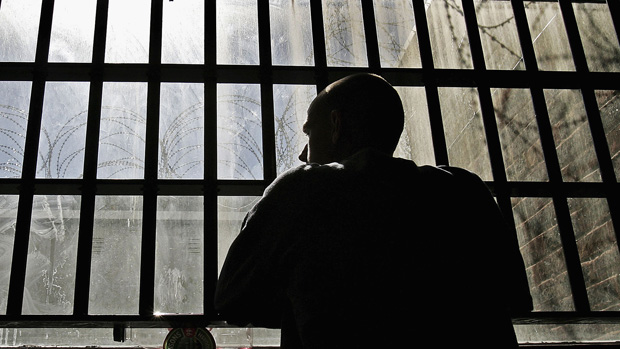Britain to build prison in Jamaica amid calls for slavery reparations
Government will spend £25 million so hundreds of foreign criminals can be sent home to the Caribbean

A free daily email with the biggest news stories of the day – and the best features from TheWeek.com
You are now subscribed
Your newsletter sign-up was successful
The government is planning to repatriate hundreds of Jamaican criminals to jails that will be built with British foreign aid funds.
The scheme will cost £25m and apply to Jamaican prisoners sentenced to at least four years who have 18 months or more left to serve in custody.
There are more than 600 Jamaican citizens in UK jails, with 70 per cent serving sentences for violence and drug offences.
The Week
Escape your echo chamber. Get the facts behind the news, plus analysis from multiple perspectives.

Sign up for The Week's Free Newsletters
From our morning news briefing to a weekly Good News Newsletter, get the best of The Week delivered directly to your inbox.
From our morning news briefing to a weekly Good News Newsletter, get the best of The Week delivered directly to your inbox.
The British government is currently unable to send them back to Jamaica because of fears that poor jail conditions would allow a successful challenge under human rights law, says the BBC.
David Cameron announced the project while on a trip to the Caribbean. "This agreement is so important. It will mean Jamaican criminals are sent back home to serve their sentences, saving the British taxpayer millions of pounds but still ensuring justice is done," the prime minister said.
Cameron also announced plans for a wider £300m infrastructure project, jointly funded by the Caribbean Development Bank, aimed at improving roads and ports and boosting economic growth.
But his visit has been overshadowed by growing controversy surrounding the payment of slavery reparations. Jamaican Prime Minister Portia Simpson Miller raised the issue at a meeting yesterday but Cameron ignored the subject, saying his visit was about future trade ties, says The Guardian.
A free daily email with the biggest news stories of the day – and the best features from TheWeek.com
Speaking ahead of his trip to the Caribbean, a Downing Street spokesperson said the government "abhorred" slavery, but it did not believe that financial reparations were the right approach.
But the pressure on Cameron is growing. Bert Samuels, a member of the Jamaican National Commission on Reparations, said he needed to "atone, apologise, personally and on behalf of his country" for slavery.
"His lineage has been traced and his forefathers were slave-owners and benefited from slavery," said Samuels. "We were left behind because of racism."
-
 Switzerland could vote to cap its population
Switzerland could vote to cap its populationUnder the Radar Swiss People’s Party proposes referendum on radical anti-immigration measure to limit residents to 10 million
-
 Political cartoons for February 15
Political cartoons for February 15Cartoons Sunday's political cartoons include political ventriloquism, Europe in the middle, and more
-
 The broken water companies failing England and Wales
The broken water companies failing England and WalesExplainer With rising bills, deteriorating river health and a lack of investment, regulators face an uphill battle to stabilise the industry
-
 Epstein files topple law CEO, roil UK government
Epstein files topple law CEO, roil UK governmentSpeed Read Peter Mandelson, Britain’s former ambassador to the US, is caught up in the scandal
-
 Iran and US prepare to meet after skirmishes
Iran and US prepare to meet after skirmishesSpeed Read The incident comes amid heightened tensions in the Middle East
-
 Israel retrieves final hostage’s body from Gaza
Israel retrieves final hostage’s body from GazaSpeed Read The 24-year-old police officer was killed during the initial Hamas attack
-
 China’s Xi targets top general in growing purge
China’s Xi targets top general in growing purgeSpeed Read Zhang Youxia is being investigated over ‘grave violations’ of the law
-
 Panama and Canada are negotiating over a crucial copper mine
Panama and Canada are negotiating over a crucial copper mineIn the Spotlight Panama is set to make a final decision on the mine this summer
-
 Why Greenland’s natural resources are nearly impossible to mine
Why Greenland’s natural resources are nearly impossible to mineThe Explainer The country’s natural landscape makes the task extremely difficult
-
 Iran cuts internet as protests escalate
Iran cuts internet as protests escalateSpeed Reada Government buildings across the country have been set on fire
-
 US nabs ‘shadow’ tanker claimed by Russia
US nabs ‘shadow’ tanker claimed by RussiaSpeed Read The ship was one of two vessels seized by the US military